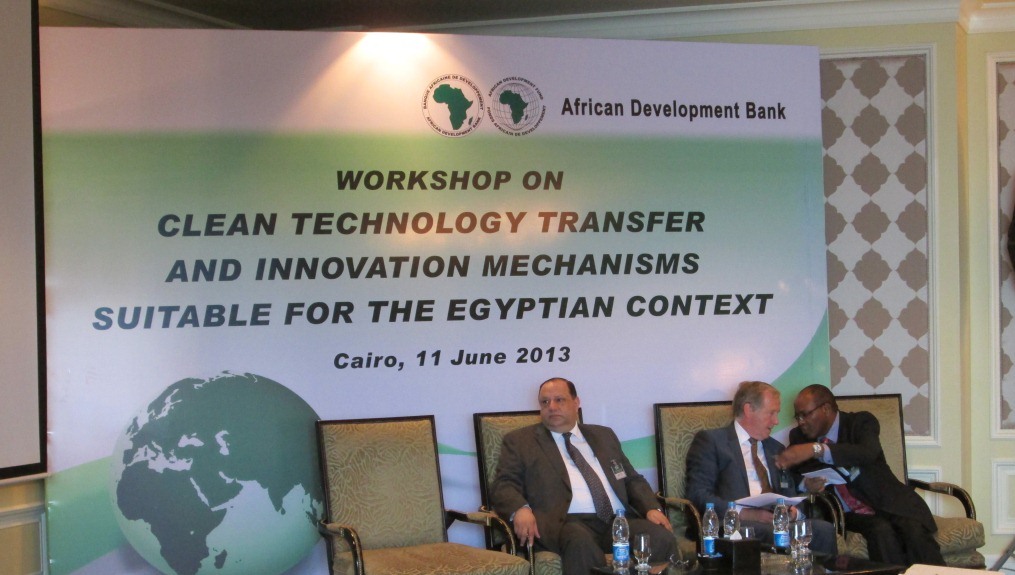
Cairo, Egypt, June, 2013 – The African Development Bank’s (AfDB’s) Energy, Environment and Climate Change Department hosted a high-level workshop in Cairo, Egypt lately to showcase the recommendations from an important study detailing successful clean technology transfer mechanisms and their potential economic impacts. The workshop is part of the Bank’s ongoing activities with the South-South Cooperation Trust Fund under the auspices of the Brazilian government.
The report, ‘Clean Technology Transfer Mechanisms in Egypt Based on Best Practices from Southern Countries’, presents six recommendations to foster clean technology in Egypt based on the country’s existing capacities, market potential, and needs. They are: develop and animate collaborative networks in the public, private and public-private spheres; create a program of targeted funds for collaborative research and development (R&D) in clean technologies; increase consumer and producer awareness building on a green/sustainable agenda; continue to put strong emphasis on wind and solar energy sources as well as biofuels and recycling of waste; strengthen implementation and compliance of green regulations; and promote the entrepreneurial ecosystem to boost clean technology startups.
Numerous Egyptian technology experts from academia and the private sector as well as renowned professors and researchers from Latin-America, including Argentina and Chile, participated in the event to discuss best practices in clean technology and how they could be implemented in Egypt. Attendees said the workshop was a great opportunity to meet and share knowledge with relevant stakeholders from around the world.
Egypt stands to benefit from major investment in renewable energies since the industry has a strong emphasis on local job creation and economic growth. Research indicates that four to six green jobs per megawatt installed in new projects could be created through local manufacturing alone. Figures also show that 100 000 green jobs could be created in the next five years should expected investments come through as predicted. However, to attain these goals, progress must be made on several levels. For example, simply pouring money into the construction of renewable energy power plants, while neglecting, for example, worker training and R&D, will not maximize the benefits of this sector.
The workshop featured keynote presentations from María Eugenia Fernández, Fundacion Chile; Jose Luis Inglese, Inglese Consultores S.A. (Argentina) as well as Prof. Dr. Maged El-Sherbiny, President of the Egyptian Academy for Scientific Research and Technology.
By facilitating exchanges from similar emerging economies, this workshop solidifies the position of AfDB as a leading institution in climate innovation and technology transfer. One of the main objectives of the new AfDB Strategy for 2013-2022 is transitioning to green growth on the African continent. Along this vein, the Bank founded the south-south exchange of innovative practices and knowledge-sharing. It has also offered to work with the Egyptian government closely during its clean technology transfer transition.
